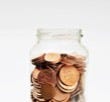Behavioural changes and trends caused by coronavirus
The coronavirus pandemic is a world-shattering event, the biggest of our generation, dwarfing 9/11 or the collapse of Lehman Brothers. With so much uncertainty, one thing is for sure: there will be lasting political, economic, social and technological change.
As I write this in London, we are in the 2nd week of a lockdown. The restrictive nature of self-isolation, job uncertainty and not knowing how long this will last, creates instant societal change not known since the Second World War. In this post, I’ll document things already happening and predict trends and behavioural changes I see coming in a post coronavirus world.
What's happening now
These are the things happening now due to COVID-19. Some of these behavioural changes and trends will be temporary due to the lockdown and others could be much longer-lasting.
Appreciation for the outdoors
With most things closed and curfews becoming more restrictive by the day it's inevitable we'll crave the outside, especially green spaces. There are numerous studies that show being around nature improves mood and reduces stress. I'm fortunate to have a park nearby but many will be couped up in claustrophobic environments with only concrete outside.
Exercising at home
The gyms are shut and going outside is being discouraged so exercising at home is massive. Millions are tuning in for daily live streams on YouTube. Joe Wicks in the UK has become an overnight superstar with his daily workouts for kids and families. Online sales for at-home exercise equipment have sky-rocketed, everything from kettlebells to ab rollers have flown off the shelves.
Increased community spirit
Residents in my apartment building ordinarily struggle to acknowledge each other. Since the coronavirus, there's already been a bunch of people offering to helps others in need. Across the world, communities come together in times of crisis.
Cooking
All the restaurants are shut and there ain't much food on the supermarket shelves. If you didn't know how to cook before, now's the time to learn. There are plenty of root vegetables available for making dishes from scratch. Now that everyone has so much time, cooking may not be seen as such a chore.
Holidaying at home
Overseas travel will be kept to a minimum (if at all) for everyone this year. Countries that get on top of coronavirus won't be in a hurry to open up their airports. This means a massive spike in home holidays. For some, this isn't unusual but for us Brits, it will be a blast from the past; going to the seaside, fish & chips and kiss me quick hats.
Using the phone
Just as speaking on the phone was becoming a lost art form. All of a sudden keeping in touch using the phone is the top way to stay in contact with friends and family. We are social animals and instant messaging isn't enough to make us feel connected.
What will happen in the future
Now it's time to consider the permanent changes in a post COVID-19 world. As with any event of this magnitude, significant changes will happen on a global scale for generations to come.
Gold price to soar
Many financial experts have different theories on what drives the gold price. Inflation, a weak dollar, geopolitical risk and interest rates are all mentioned. Many of these theories work some of the time but not always. One thing is for certain and it's easy to understand: as the global money supply increases gold does well. The level of global money printing/debt is running at astronomical levels and since the coronavirus pandemic, money printing has increased to "lightspeed".
The numbers are so big that they've stopped making sense. The Federal Reserve in the USA has just launched "QE infinity" and are purchasing $75 billion of treasuries *per day*.
The gold standard existed to prevent this: currency debasement. Money has no value it's just paper and is solely dependent on the people's trust. Some may ask, what about Bitcoin? But mankind's obsession with the yellow metal has existed for thousands of years and there's no sign of that changing anytime soon. Much of this effort is to stop big businesses from failing and is contrary to a free-market economy. Martin Luther King referred to this as "socialism for the rich".
"We all too often have socialism for the rich and rugged free market capitalism for the poor"
Martin Luther King
Robots don't get sick
If there was ever a catalyst to accelerate the movement into automation - this was it. No need to worry about employees getting sick and supply chains falling apart when your employees are robots.
Prepping movement to balloon
What used to be a fringe part of society has now become mainstream. Prepping (or survivalism) is the practice of making preparations for a catastrophic disaster or emergency. Once the dust settles many people won't want to get caught out again; chest freezers, smallholdings, off-grid supplies (solar etc), bidets! and much more will sell well. Going totally off-grid or moving to a commune and home-schooling won't feel like a radical concept anymore.
China to decline / deglobalisation
Based on current growth many economists believe China will inevitably become the largest economy. Others, however, point to Japan when they were experiencing rapid growth. Many economists at the time were predicting economic supremacy for them too, only for decades of stagnation to ensue.
In the post coronavirus world, many countries will pursue a more nationalist agenda and question the merits of total-globalisation. When production is outsourced it means you struggle to make ventilators and get hold of personal protective equipment. If countries do take a more nationalistic stance, expect inflation to ensue.
Boom in health/hygiene tech
I've always wanted facemasks to be more socially accepted in the West. I'd feel too much like a weirdo wearing one on the London tube by myself! But why wouldn't you want to reduce your chances of getting sick? Admittedly, most of the masks being worn by Joe Public don't do anything but some are effective, 3M are the market leaders in this area. Expect them and others to produce consumer-friendly and trendy looking versions. It's a great subscription-based business model.
More working from home (WFH)
I'm shocked so many businesses have been dragging their heels over this. Expensive office costs can be dramatically cut by encouraging everyone to work from home for a percentage of the time. If you work in an office, there's a good chance your job is pointless anyway, so what difference does it make where you are! This current lockdown experiment could open more eyes. Online collaboration software will only do even better after COVID-19. Not only is WFH good for employees but it gives companies a resilient de-centralised setup for combating future disasters.
People start living within their means
For too long the global economy has been driven by corporate and consumer debt. One of the scariest things about this pandemic has been the economic consequences. Very few businesses and people have an emergency fund which means big government bailouts. On the surface, it feels rationale but it discourages businesses and people to live within their means.
An even bigger shift to online
The retailers that are not only surviving but thriving with COVID-19 are those with a strong online presence. Those that survive coronavirus will have an even bigger push into the online space.
Online learning to grow
Education costs have become ridiculous with massive saddlings of debt once you finish. Now that everyone is forced to learn from home, when we get back to reality, people will question the merits of an expensive education system and opt for cheaper and more flexible online alternatives.
Summary
As crazy as the world seems right now, I remind myself that many of us have it pretty easy compared to much of the world (especially in the UK). Too often when watching the news about a refugee crisis or warzone it doesn't feel real, it's like a movie. As we all struggle with the food shelves being less-well replenished and the threat of getting sick, it sinks in that bad events can happen anywhere, but it could be a lot worse. That being said I believe this is just the beginning, the world will never be the same again. Let’s hope it’s for the better but I have my doubts.
Further reading
Yuval Noah Harari: the world after coronavirus: https://www.ft.com/content/19d90308-6858-11ea-a3c9-1fe6fedcca75
How the World Will Look After the Coronavirus Pandemic:
https://foreignpolicy.com/2020/03/20/world-order-after-coroanvirus-pandemic/
















